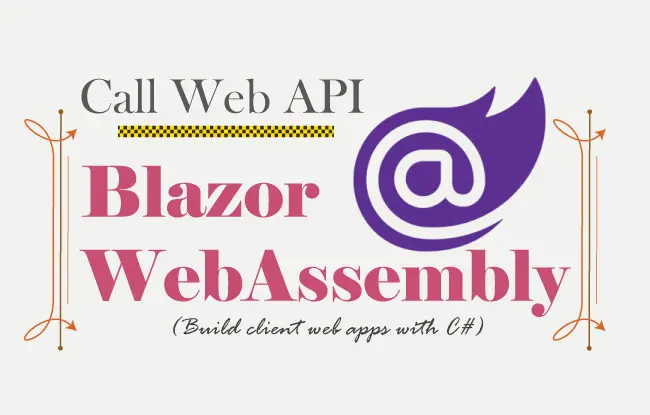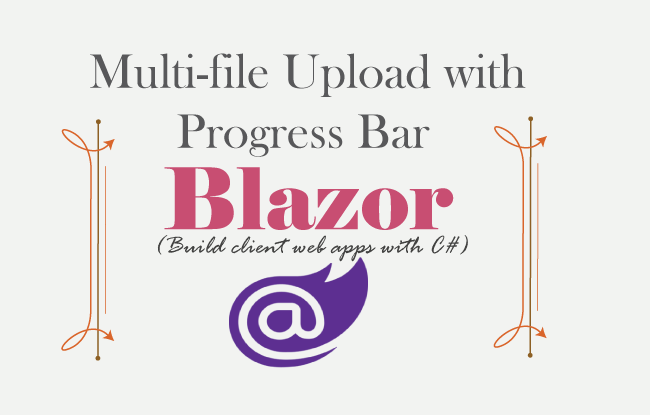Tutorials on ASP.NET Core, Blazor, jQuery, JavaScript, Entity Framework, Identity, WordPress, SQL, HTML & more
Deploy a Docker based ASP.NET Core app to Azure
In this tutorial we are going to perform ASP.NET Core Docker app Deployment to Azure cloud service provider. We have already created the app on our last tutorial whose link is - First ASP.NET Core web App in Docker Container. Once the deployment is completed, we will be able to view the app on the browser with a URL.
(more…)ASP.NET Core APP with HTTPS in Docker
SSL Certificates are very necessary for the Trust, Identity and Encryption of an APP. In ASP.NET Core, the apps use HTTPS Certificates by default, they use self-signed development certificates for development purpose. So, when you are hosting your app on a Docker Container then it is needed to tell docker where to find this development certificate in the machine. Once Docker knows the location of the HTTPS certificate then your app will start opening with https url, eg https://localhost:8001.
The procedure will be same for the production scenario also. You can generate a free HTTPS certificate from Let's Encrypt, then tell your Docker app (which is running in Azure or AWS), to find the HTTPS certificate from a given location on Azure or AWS.
(more…)Create first ASP.NET Core App in a Docker Container
In this ASP.NET Core Docker article we will create our first ASP.NET Core App running from a Docker Container. We will do all this from the very beginning so it will be a good learning experience for you. We will also go through the installation of Docker in Windows, MacOS and Linus, and will also learn some of the most needed Docker commands which you need to know as an ASP.NET Core developer.
Filtering Elements with jQuery .filter() method
Use jQuery Filter method to select elements based on certain criteria. Example – with .filter() method you can select all p elements in your page that has a certain class.
(more…)Blazor WebAssembly : Call Web APIs to perform CRUD Operations
What is Blazor WebAssembly? A WebAssembly is a virtual machine that runs inside the browser. It converts high level language codes like C# into low level language code so that they can be run on the browser directly. Blazor WebAssembly (WASM) apps executes directly in the browser on a WebAssembly, just like JavaScript.
(more…)Blazor Multi File Upload with Progress Bar
Every website has a file upload feature and if your website is built in Blazor then you can create a very good Multi File Upload feature that also has a Progress Bar in it. This tutorial will teach you this thing, the link to the download of the source code is given at the bottom. But before that, I recommend you to read this tutorial so that you can understand how it is working. I have explained all it’s parts in detailed manner with video illustrations wherever possible.
(more…)Blazor – Creating a reusable HTML Select Component with a Custom Validator
In this tutorial we will create Blazor Reusable Components that can be used in multiple places. They save a lot of time when you are creating big projects. In this tutorial I will create a reusable HTML Select element from scratch. Later on, I will also integrate a Custom Validator on this select element.
(more…)Blazor Number Paging and Sorting
In this ASP.NET Core Blazor 7.0 Tutorial I will create a Number based Paging for displaying records. There will also be the feature to Sort the records in ascending and descending manner. Once this feature is completed it will work as shown by the below video:
(more…)Free Web Hosting for Students: Pros and Cons
The Internet is an amazing source of knowledge, learning, entertainment, and so on. Every user can find something special to satisfy his/her needs. Thus, many students use the Internet to achieve certain goals. Young people feel important to express themselves on the Internet. It can be done thanks to writing blogs, comments, posting images and videos, etc. This activity helps to relieve some pressure, find friends, overcome some problems, and so on. One of the good ways to use the World Web is to create free web hosting.
(more…)CRUD Operations in Blazor with Entity Framework Core
In this tutorial we will perform Blazor CRUD Operations using Entity Framework Core. Kindly note that on my previous tutorial on Blazor forms and validation we did the project configuration for Entity Framework Core. We will continue to add this CRUD feature to that project, so make sure to read the previous tutorial also.
(more…)











 Welcome to YogiHosting - A Programming Tutorial Website. It is used by millions of people around the world to learn and explore about ASP.NET Core, Blazor, jQuery, JavaScript, Docker, Kubernetes and other topics.
Welcome to YogiHosting - A Programming Tutorial Website. It is used by millions of people around the world to learn and explore about ASP.NET Core, Blazor, jQuery, JavaScript, Docker, Kubernetes and other topics.